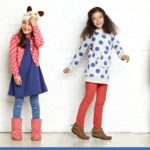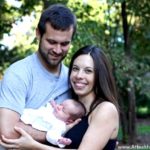 When children learn how to walk, they’re known as toddlers. Usually this term is used to 1 and 2 years old children. The toddler stage is essential inside a child’s existence. It’s the time between infancy and childhood whenever a child learns and grows in lots of ways. Everything which happens to the toddler is significant. With every stage or skill the kid masters, a brand new stage begins. This growth differs for every child. Children their very own timetable. Throughout the toddler stage, most kids learn how to walk, talk, solve problems, connect with others, and much more. One major job for the toddler would be to learn how to be independent. That’s the reason toddlers wish to accomplish things on their own, their very own ideas about how exactly things happen, and employ "NO" many occasions every day.
When children learn how to walk, they’re known as toddlers. Usually this term is used to 1 and 2 years old children. The toddler stage is essential inside a child’s existence. It’s the time between infancy and childhood whenever a child learns and grows in lots of ways. Everything which happens to the toddler is significant. With every stage or skill the kid masters, a brand new stage begins. This growth differs for every child. Children their very own timetable. Throughout the toddler stage, most kids learn how to walk, talk, solve problems, connect with others, and much more. One major job for the toddler would be to learn how to be independent. That’s the reason toddlers wish to accomplish things on their own, their very own ideas about how exactly things happen, and employ "NO" many occasions every day.
The toddler stage is characterised by much growth and alter, moodiness and a few negativity. Toddlers are lengthy on will and short on skill. For this reason they’re frequently frustrated and "misbehave." Some adults call the toddler stage "the terrible twos."
Toddlers full of energy and concepts have to explore their atmosphere. You have to make certain that they’ll explore within an atmosphere that’s safe on their behalf. They would like to be independent, but, they’re still very dependent.
Toddlers are extremely worried about their very own needs and concepts. For this reason we can’t expect these to share. Toddlers sometimes get frustrated as they do not possess the vocabulary skills to convey themselves. Frequently they’ve difficulty separating themselves using their parents.
Usually between 2-1/2 and three years old, children start to take a desire for being potty trained by age three they will be ready to be referred to as preschoolers. With this age, most kids are potty trained, allow us verbal skills, are ongoing to become more independent, and therefore are taking an energetic interest on the planet around them.
Twelve Months Olds
Physical Development – Toddlers may consume less food, however they have a tendency to eat frequently during the day. They get good at feeding themselves, although spills should be expected. They might grow less rapidly than during infancy. Most walk without support by 14 several weeks. Most walk backward or more steps by 22 several weeks. They are able to drink from the cup with help. They are able to scribble. They are able to stack blocks.
Social and Emotional Development – Outbursts are typical. They’ve difficulty discussing toys. They might be possessive. They would like to do things individually. They can’t remember rules. They reveal growing fears. They’ve rapid mood shifts. Their feelings are often very intense but short-resided. Routines are important. They like playing on their own or beside (avoid) other children. They view themselves as the middle of the planet. They might continuously request their parents. They become more and more more self-aware. They start to express new feelings for example jealousy, affection, pride and shame.
Intellectual Development – Toddlers name familiar people and objects. Their attention span is brief. They’re curious. They will use "NO" frequently. They indicate objects they want. They name parts of the body and familiar pictures. They imitate animal sounds. They will use pronouns me and mine. They are able to hold a pencil and scribble. They combine two words to create a fundamental sentence. They indicate objects they want. They will use objects for his or her intended purpose. They start to incorporate a second part of pretend play.
2 Year Olds
Physical Development – They get up on tip toes. They throw balls and kick them forward. They walk, run, climb, walk up and lower stairs alone and dig. They jump with two ft together. They think discomfort with wet or soiled diapers. Linked with emotions . show a desire for potty training. They start out apart and set it well together. That they like to screw and unscrew covers. Youngsters are generally more active than at every other reason for their lives.
Social and Emotional Development – They struggle to say themselves by saying "No." That they like to mimic the behaviour of adults yet others. They would like to assist with household tasks. They start to play simple pretend games. Their fantasy play is extremely simple and short. It doesn’t involve others. They often target your product of what’s requested. They can be very self-centered and discussing continues to be difficult. They like playing near other children. They won’t help. They’re more certain of themselves than a single-year-old children. They become frustrated easily. They still security.
Intellectual Development – They express their feelings and desires. To follow simple directions. They still possess a limited attention span. They will use 3 or more words together. They are able to commit to memory short rhymes. They will use objects to represent other objects. They are able to participate in simple songs. They’ve trouble making choices, but they would like to make choices. They start to consider doing something prior to doing it.
Resourse: https://extension.illinois.edu/babysitting/
Improving your child's fine motor and gross motor skills
Video COMMENTS:
- Island KO: I'm here since my fine motor skills are bad. I'll try these out sometime.
- Bhutale Pramod: I needs some different different fine and gross motor activities
- Bhutale Pramod: Nice activities fine and gross motor skills. I'm Pramod
Special Educator children's with special need's. From -Hyderabad Talangana Indian
- Tom Bell: Walk across the kurb we'res the road safety in that
- Pediatric Physical Therapy: Well done, Kendra. Love your video. Did you see the latest on motor function testing from Pediatric Physical Therapy journal? There's a clip with Arizona physical therapist Deanne Fay that you might like. It's at: https://www.youtube.com/watch?v=0VLT7hrhm5c
Best wishes. PPT Podcast, Peter
- Grill Here: I have dyspraxia and this although seems childish helps me a lot with my fine motor skills
- Kingston School: great
- Oussama Khamlichi: That little girl is just soooooooooo cuuuuute 🙂
- love di choreo: Would this be good for students with autism?
- LUCKY CRAFT: A good therapy we can do at home at no cost for us parents, thank you for this
 Baby and Mom times
Baby and Mom times 


